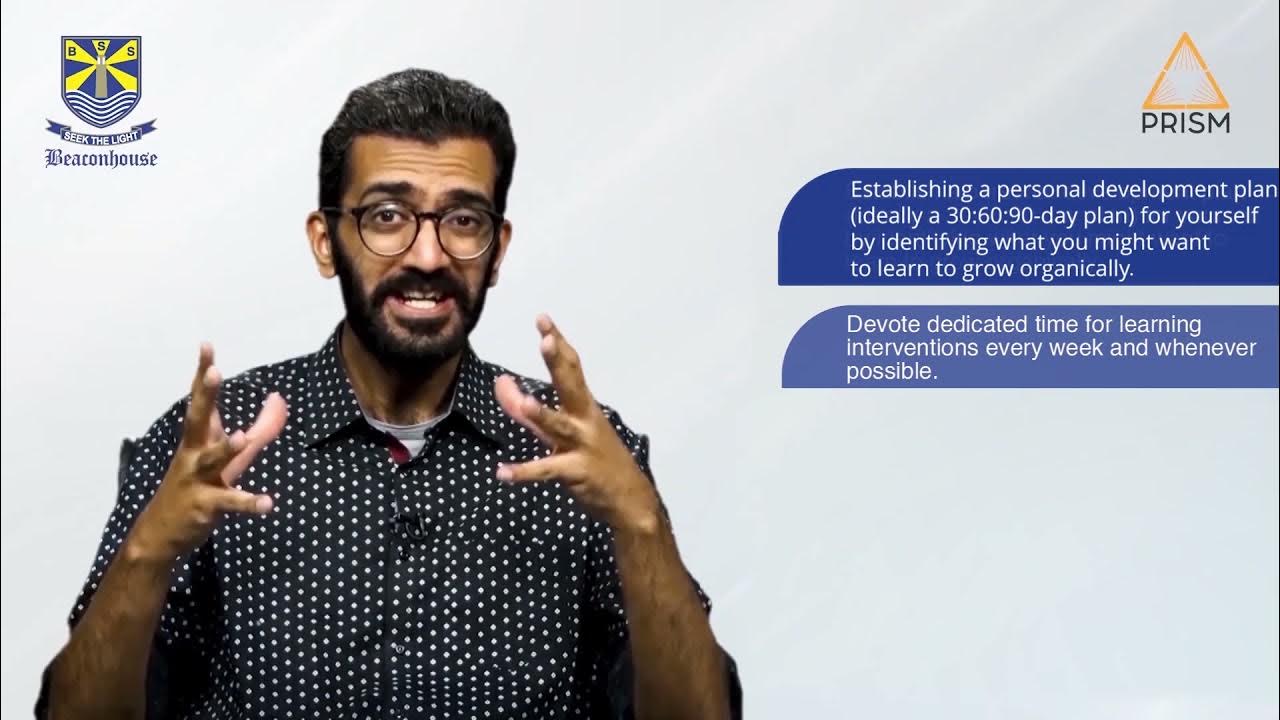Building a Motivational Workplace Culture: Reinventing Compensation | Rebecca Ahmed | TEDxOneonta
Summary
TLDRRebecca Ahmed shares strategies for creating a motivational workplace culture. Drawing on her experience in human resources, she emphasizes the importance of aligning company values with actions, maintaining trust through transparency in compensation, and designing personalized, win-win pay structures. Ahmed illustrates her points with personal stories, such as discovering her own underpayment and helping a colleague thrive through transparent, customized rewards. Her key recommendations are: treat employees as you want to be treated, openly discuss pay, and tailor compensation to individual needs, all of which can energize and engage employees, boosting organizational value.
Takeaways
- 😀 Understanding motivations is key in both parenting and leadership, as different individuals are driven by different factors.
- 👐 Core values should be present in every aspect of a business, not just posted on websites or walls.
- 🏅 Aligning personal values with company values helps employees feel more energized and invested in their work.
- 💰 Transparency in compensation is essential for trust; hiding salary information can demotivate and disengage employees.
- 🧩 Trust, once broken, is hard to rebuild and affects employee morale and productivity.
- 📊 Salary transparency is becoming increasingly important and can drive both retention and productivity.
- 🚀 Companies like Starbucks and Buffer are leading the way in pay transparency, and this practice can lead to better employee engagement.
- 🎨 Personalized compensation plans that cater to individual employee needs can create a win-win situation for both employer and employee.
- 🛠 Providing additional support such as leadership coaching or flexible schedules can help employees grow and succeed, increasing their value to the organization.
- 💡 Organizations that are transparent and treat employees with respect can foster a motivated, engaged workforce, leading to overall business success.
Q & A
What are the four lessons learned from negotiating with children, according to the speaker?
-The four lessons are: 1) What motivates one person does not work for another; 2) Wants and needs consistently change; 3) You get what you pay for; 4) Kids talk.
How does the speaker relate leadership in a large organization to managing a household?
-The speaker relates leadership in organizations to managing a household by emphasizing that both require motivating people (or children) and maintaining their energy and engagement. This applies to leading a large team or managing children at home.
What personal background does the speaker share to establish credibility?
-The speaker shares that they are the oldest of nine siblings, which gave them early experience in leadership and understanding motivation. Although they have no children of their own, this background allowed them to develop the skills necessary for motivating and managing others.
What is the main focus of the speaker’s recommendations for creating a motivational workplace culture?
-The main focus of the speaker's recommendations is on reinventing compensation to create a workplace culture where employees feel motivated, valued, and energized.
Why does the speaker emphasize the importance of aligning personal values with a company’s values?
-The speaker emphasizes this because when employees’ values align with a company’s vision and mission, they feel more connected to their work, which energizes them and makes them more valuable to the organization.
What impact did underpaying the speaker have on their performance and attitude?
-When the speaker found out they were being paid below market rate, it caused them to decrease their value and energy, leading to cutting corners at work and looking for other disgruntled employees to share negative experiences with.
What does the speaker suggest companies do to build trust with employees?
-The speaker suggests companies should 'walk the talk' by aligning their actions with their stated values, treating employees fairly, and fostering transparency, especially in compensation.
What example does the speaker give of a company leading the way in compensation transparency?
-The speaker gives examples of Starbucks, which committed to 100% gender pay equity in the U.S., and Buffer, which created a public algorithm for calculating employee pay to ensure fairness and transparency.
How does personalized compensation contribute to employee motivation according to the speaker?
-Personalized compensation, which takes into account individual needs and roles, creates a win-win situation where employees feel valued, motivated, and empowered to succeed, as demonstrated in the story of 'Joy,' the employee who thrived after receiving customized support.
What are the three main recommendations the speaker gives for building a motivational workplace culture?
-The three recommendations are: 1) Treat employees how you want them to treat you; 2) Be transparent about what you pay employees and why; 3) Design a compensation plan that creates a win-win for both the company and the employee.
Outlines

Этот раздел доступен только подписчикам платных тарифов. Пожалуйста, перейдите на платный тариф для доступа.
Перейти на платный тарифMindmap

Этот раздел доступен только подписчикам платных тарифов. Пожалуйста, перейдите на платный тариф для доступа.
Перейти на платный тарифKeywords

Этот раздел доступен только подписчикам платных тарифов. Пожалуйста, перейдите на платный тариф для доступа.
Перейти на платный тарифHighlights

Этот раздел доступен только подписчикам платных тарифов. Пожалуйста, перейдите на платный тариф для доступа.
Перейти на платный тарифTranscripts

Этот раздел доступен только подписчикам платных тарифов. Пожалуйста, перейдите на платный тариф для доступа.
Перейти на платный тариф5.0 / 5 (0 votes)






